HomeFeaturesBellwright
The Rally Point: Bellwright is secretly a lesson in good managementWe toll for thee
We toll for thee
Image credit:Rock Paper Shotgun/Donkey Crew/Snail Games USA
Image credit:Rock Paper Shotgun/Donkey Crew/Snail Games USA
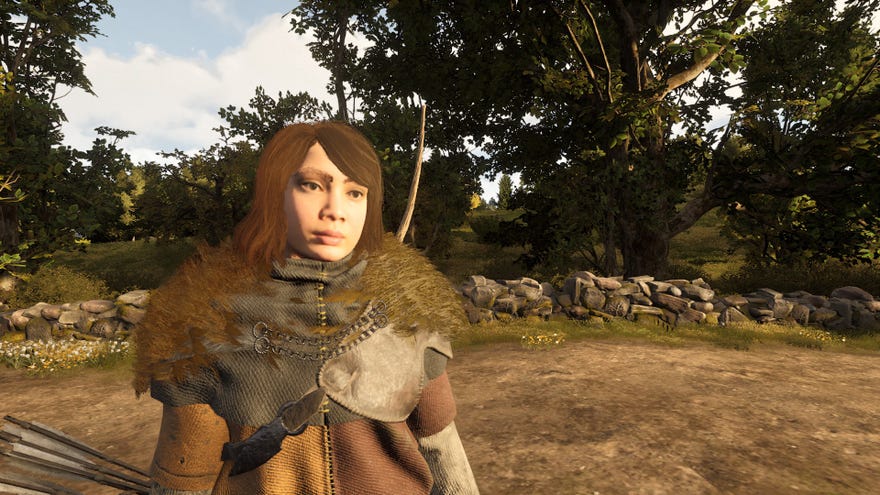
Good managers are rare and precious. And I’m not one of them.
Bellwright’s tricky because if I list everything that’s in it, you might get excited, but then find that although you like its parts, you don’t like the way they’re arranged. You might be very interested in one or two elements but hate the others. Or I may make it sound like it’s spreading itself too thin.
It is ostensibly about avenging some weirdly interesting, folk-tale-esque misfortune from your youth, but that becomes irrelevant almost immediately. Its store page centres on how it’s about leading an army to do sortaMount & Bladeskirmishing and stabbing, in a fully open 3D world. It’s a crafting andsurvival gametoo, which is partly why I went astray, but we’ll get there.
Image credit:Rock Paper Shotgun/Donkey Crew/Snail Games USA

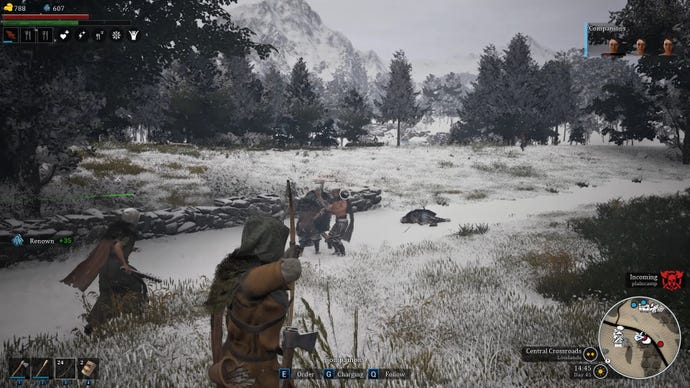
From there you can arm them as “companions”, who’ll follow you around and obey basic orders as you explore, fight, and win over more villagers until they’re knocked out (they return as wounded, and die permanently if battered again before recovering) or run out of food. You can have them patrol your land to slow the progress of the regular raids (whose frequency and intensity can be adjusted, or disabled entirely, an important feature in the game’s favour given how its hybrid nature will attract a variety of players). I failed to do enough of this companion thing for a long time, which was my first mistake. I like exploring and foraging, and having people standing around awkwardly watching me felt weird.
Image credit:Rock Paper Shotgun/Donkey Crew/Snail Games USA
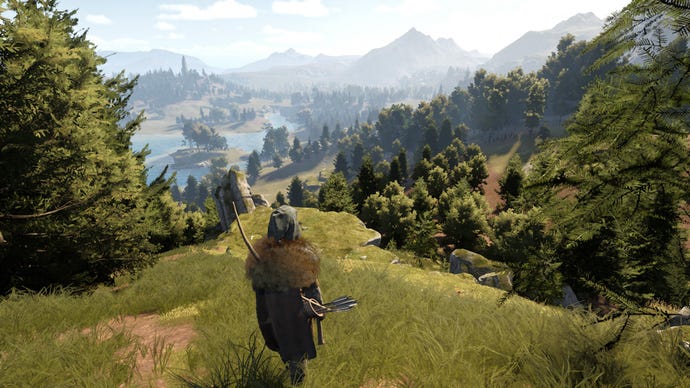
You have to search for good lands too, and there’s the other reason I got sucked into my mismanagement hole: the prettiness of Bellwright’s world, and the lovely vibe of its music. Just the occasional, lazy strings of the cowboy game (orMedieval Colon Total War), but this actually leaves you alone instead of making you play GTA every time you go for a walk.
All this led me into wandering, hunting, gathering, personally keeping my people fed. I stopped doing my own crafting weeks ago, having finally twigged that crafting leaves you stuck in a menu watching a progress bar becauseyou’re not supposed to be doing this personally, but I failed to make the same observation with foraging and hunting. Well. I knew, intellectually. But I was enjoying myself. And I got into scraps with bandits sometimes, and I needed to explore to do quests and that anyway so it’s fine that everyone back home keeps running out of food while also having nothing to do, right?
But Bellwright isn’t a survival game, or a building, or combat game. It’s all of those things integrated into a village management game. And I was failing my village. I didn’t have permanent companions because I’d failed to provide enough excess food to keep them going, and couldn’t spare the workers.Because I’d set them up all wrong. I was frequently fiddling with things on the surface. Remotely ordering workbench items, sending deliveries from one camp to another (you can freely build multiple settlements, with buildings and individuals divided as you like), building a haphazard collection of stuff in cool places.
Image credit:Rock Paper Shotgun/Donkey Crew/Snail Games USA
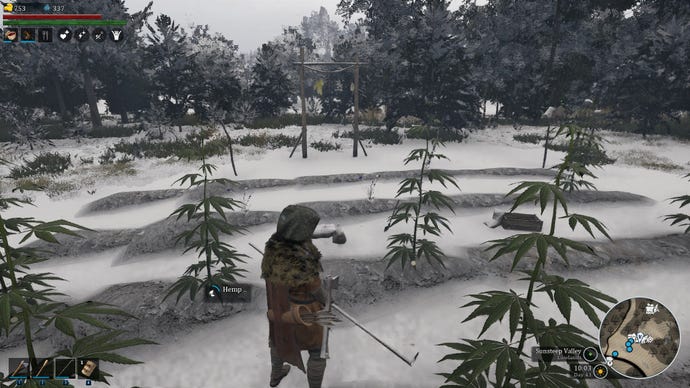
On the plus side, as a manager in Bellwright your people are very pliant. They’ve no meaningful distinction beyond stats and faces, and don’t need the kind ofpersonmanagement that makes up the unsung bulk of the real work. They don’t have flare ups and breakdowns, and if they did I’d probably just boot them rather than be patient. They don’t, say, fuck about being late with absolutely everything and still insist on urgency because their finances are such a shambles. But still I should have been better. I would never be great, but I should have learned from the example right before me.
A better manager than me would have set these people up with what they need to begin with. She’d have been seen emailing prospective contributors with gentle critique of their pitches. She’d hear me struggling, and adjust my priorities to better suit my strengths instead of stupidly insisting authority was reason. She’d have had a bit of a go at me for not eating my vegetables EVEN THOUGH doing Unknown Pleasures meant playing lots of things I hated, ACTUALLY. She’d have helped me get the treatment that’s kind of saving my life. She would have been underappreciated in her time, as the good ones usually are, but never let that ruin everything.
Image credit:Rock Paper Shotgun/Donkey Crew/Snail Games USA
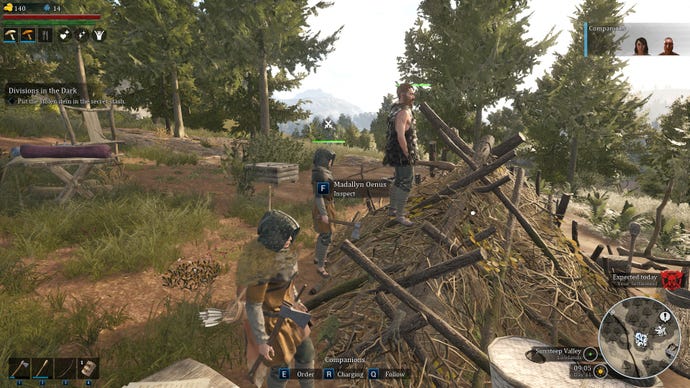
It’s a bit wobbly in parts. Combat is a little under-responsive, and tactical maneouvering limited to rather flailing scrums. Battles take a bizarre rhythm if you skirmish, as attacking enemies alternate between sprinting towards you across a field and running away like a mugger with social anxiety. Nobody has much personality, and god I wish they hadn’t included an “AI” voice option at all. It adds nothing, and only the in-menu promise that it will be gone one day (and is optional) keeps me from a paragraph of invective about its inclusion.
But I like Bellwright a lot. With an estimated 3 years of early access ahead, this could become an incredibly absorbing game. It’s been ages since I was sucked into a big tree punching sim, and where usually those end with boring plenty or grinder’s remorse, there’s something novel here. I appreciate how it’s demonstratingwhymajor change really only comes via strategy: even if you could do anything yourself, you’ll never do it all alone. You gotta organise some people. A good warlord or general is a good manager first, and good managers are rare and precious.
We’ve all had bad managers. My people know all too well the woe that they can bring. Now that Bellwright has shown me that I am in fact one of those bad managers, I can only console myself with the thought that they will never know the far greater woe of working under a great one, only to have them unjustly taken away.